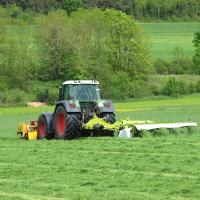(BRUSSELS) – European farmers eligible for direct payments are as from 1 December set to receive an additional EUR 435 million from the EU’s Common Agricultural Policy budget amounting to unused crisis reserve.
Since the 2013 CAP reform, an ‘appropriate’ sum is deducted every year from farmers’ direct payments in order to create a yearly agricultural crisis reserve.
This money can be mobilised, if the annual budget is found not to be sufficient to finance the needs for market support measures such as public intervention and private storage and exceptional measures in crisis situations.
However, if it is not used by the end of the year, this reserve then reverts back to the farmers.
Since September 2015, the Commission has provided over EUR 1 billion extra in financial support to an agriculture sector which has faced particularly tough market conditions.
Nevertheless, Commission and co-legislators decided this support would be financed without resort to the crisis reserve, top avoid affecting the direct payments due to farmers.
Additional measures taken such as the extension of existing market measures and the distribution of national envelopes were financed from existing budgetary availabilities in 2016, while the latest solidarity package from July 2016 for the dairy and other livestock sectors will be funded from the 2017 budget.
“2016 has been a difficult year for many farmers and a number of market sectors in particular”, said the EU’s Agriculture Commissioner Phil Hogan: “I am pleased that the Commission has been able to respond with a series of additional measures without having to trigger this last resort, the agricultural crisis reserve. This means that we have been able to react without reducing EU income support to the farming sector.”
The crisis reserve has in fact not been used since its introduction within the 2013 reform.
The deduction only applies to direct payment amounts above EUR 2,000 and did not yet apply in Bulgaria, Croatia and Romania in budget year 2016 because the Direct Payments amounts were still not fully phased in in these Member States.



